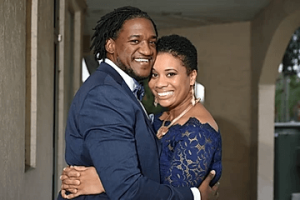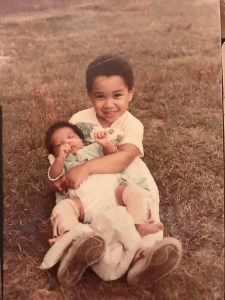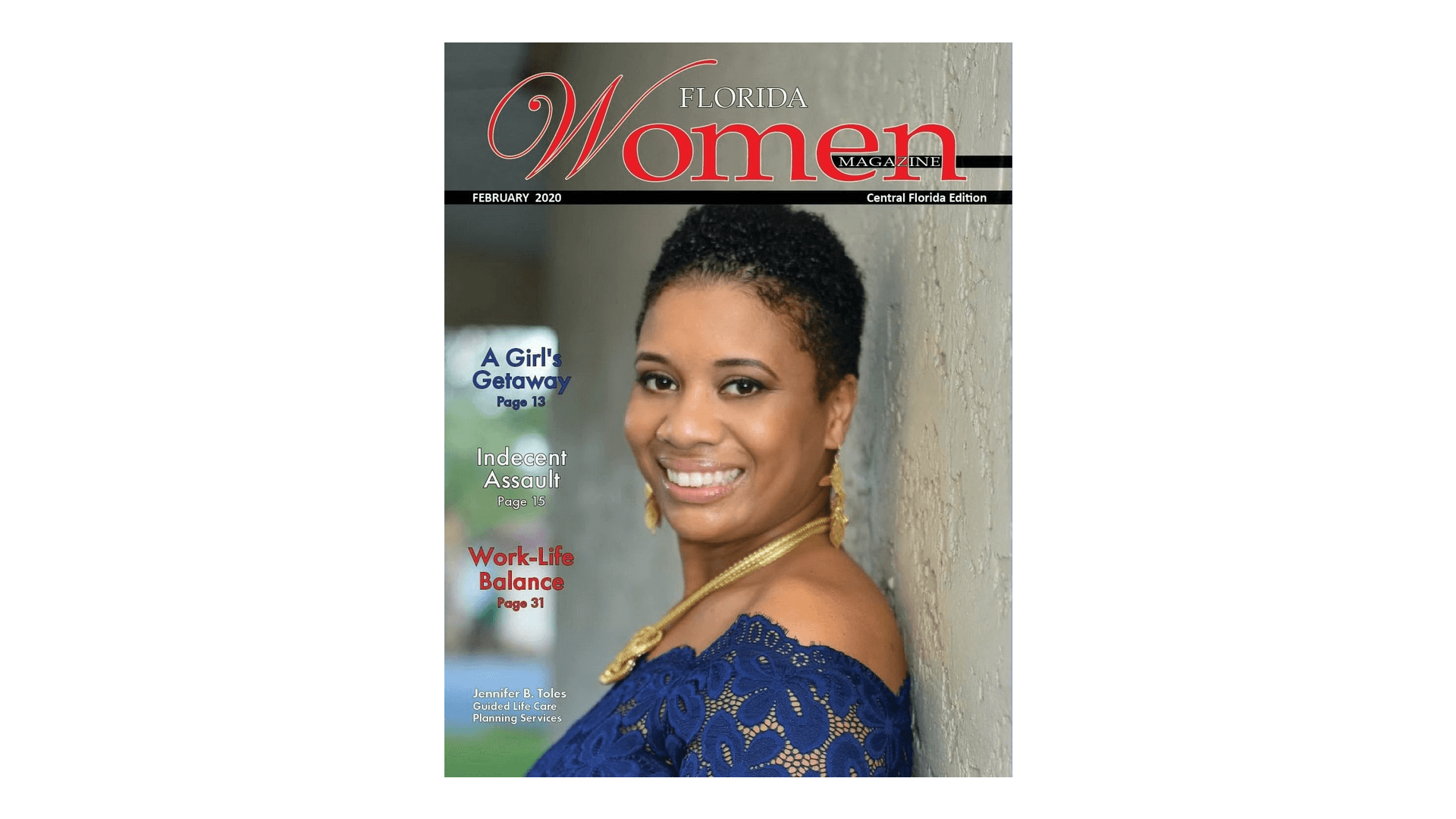- Posted on
- Guided Life Care Planning Services
- 0
Our very own CEO has been featured in Florida Women Magazine for there Empowered Women spotlight
We find the Empowered Women for our features in several ways. We often spot someone that catches our eye and reach out to her to see if she is open to an interview. Sometimes, someone will nominate a colleague or friend and we dig a little to find out more. Occasionally, a confident woman will reach out to us about herself, and well, you’ve got to love someone who believes in herself and her mission. This is the first time we have ever had a husband nominate his wife, who also happens to be his business partner. The admiration with which Anthony Toles made his case was genuine as he told us of how she is making “a lasting positive impact on our community and society at large” with what she is doing with their business Guided Life Care Planning Services. Well, Anthony. You had us at “very special lady.” We are suckers for love.
ON WHAT DRIVES HER
In order to get to the heart of Jennifer, you really have to go back to the beginning. There are several circumstances in her life that made Jenn feel she was destined to advocate for those in need. Jennifer, recounting how she feels blessed, “When I was born, I was born without knees. The doctor said I would never walk… I would be wheelchair bound for the rest of my life. My parents took me to our church, we were living in New York at the time, and the pastor prayed over my knees. A couple weeks later the doctor was like, ‘Whoa!’…” she slows down and her voice imitates disbelief… ’you’re growing knees! I’ve never… this is very odd! This is weird!’ So that was one thing where I was like, well,” and she straightens in her chair, and the light in her eyes showed me that she was repeating her deepest conviction, “I’ve been ordained to do something. But, we’ve all been ordained to do something.”

The other significant part of Jennifer’s life that influenced her to seek a career advocating for the disabled was watching her mother struggle with her health. She recounted how her mom slowly lost her eyesight due to diabetes. Over time she lost her ability to be a nurse. They finally found resources that taught her the skills to work with different assisted technologies, making it possible for her to learn another job. Unfortunately, she was only able to work for three years before other physical ailments made it impossible to work.
“My big thing was, well, if I can help someone else before this point, you know, before it got there, then that would be a blessing that I can do.”
To break down what Jennifer does for a career into layman’s terms, she is a crusader for the people. She takes a look at a disabled patient’s medical history, treatment plan, finances and home environment and carefully helps them or their caregivers plan out their lives. When she was in the corporate setting she was advocating for patients, by working as a liaison between the medical, legal and insurance communities, and helped them navigate through all of the difficulties of life as a disabled citizen. She also conducts vocational evaluations for people that are disabled who think they can’t work for the rest of their lives. “I evaluate what they actually can do, encourage that, and rehabilitate them back to work.”
There really wasn’t any aspect of her corporate career that she didn’t have to overcome adversity. For starters, of the mere less than 600 life care planners in the US (according to the Commission of Healthcare Certification), very few of them are African American women. Jennifer recalled a time that she attended an industry conference. This conference was filled with about 1,000 industry professionals, ranging from life care planners to rehab professionals. There were exactly three other African American women in attendance, and Jennifer recounted how they gravitated toward each other and naturally ended up at the same table. The ladies were getting to know each other when a few of their white colleagues approached to chat. They asked if the ladies were related! She laughed when she told me of how the ladies gave each other the “culture look.”
Read the complete article HERE
Florida Women Magazine, Jen Wead



